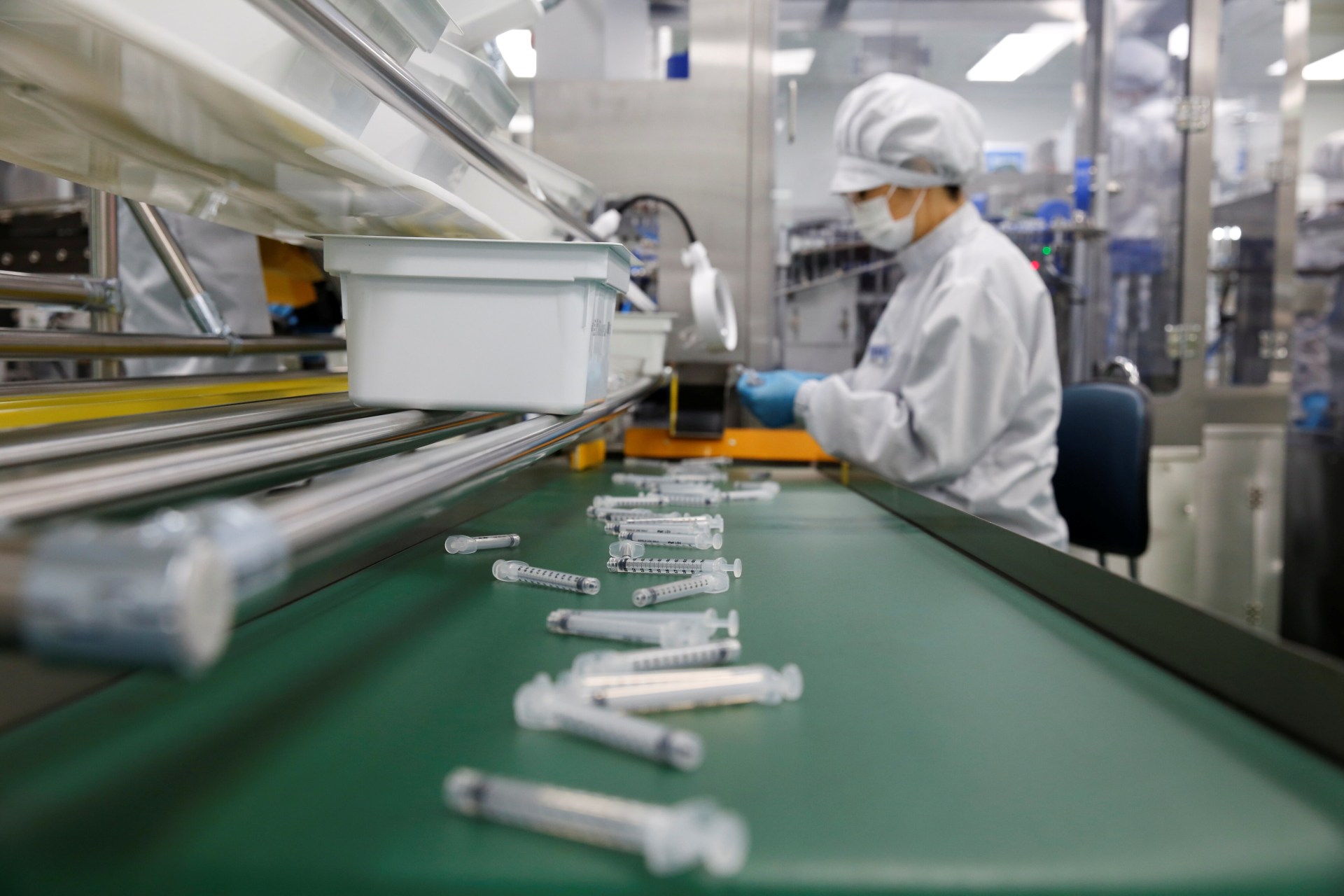United States and South Korea Should Forge “Vaccine Alliance”
The upcoming South Korea-U.S. summit meeting in Washington, D.C. should serve as an opportunity to forge a symbiotic “vaccine alliance.”

By experts and staff
- Published
By
- Guest Blogger for Asia Unbound
This article is authored by National Assemblyman Park Jin, a lawmaker of the opposition People Power Party in South Korea. Park chairs the party’s special committee on diplomacy and security and previously served as president of the Korea-America Association.
The global COVID-19 pandemic situation remains grave, with daily numbers of confirmed cases remaining steady or continuing to rise in many countries.
Presently, South Korea’s vaccination rate against COVID-19 is in the single digits and ranks thirty-fifth among the thirty-seven OECD member countries. In contrast, Israel has fully vaccinated over half of its population, and the United States, United Kingdom, and Chile have each fully vaccinated over a third of their respective populations. Last year when vaccines were being developed, these nations devoted all their energy to securing sufficient supply to protect the lives and safety of their peoples. Despite South Korea’s early success with the “K-Quarantine,” it has fallen far behind in the fierce global competition to secure vaccines. The Korean people continue to suffer from the effects of the pandemic, exacerbated by an already constricted economy.
Fears of a global imbalance between vaccine supply and demand have proven justified, with overall supply and availability of follow-up shots in question. The shortage is increasing the likelihood of a setback in herd immunity especially among high-risk groups, including those sixty-five or older. There is a critical need to take corrected, permanent actions to achieve herd immunity.
Particularly urgent is the need for South Korea to establish a close partnership with the United States for vaccine development, production, and supply. The United States leads the world in terms of verified safe vaccines based on mRNA technology. As staunch blood-tie allies, South Korea and the United States share the core values of democracy, market economy, the rule of law, and human rights. They should put into place a reciprocal “South Korea-U.S. vaccine partnership” that includes a “vaccine swap” between the two countries, whereby South Korea receives urgently needed supplies of surplus U.S. vaccines and returns the gesture with identical vaccines at a later date.
To achieve the Korean-American vaccine partnership, accelerate the end of the COVID-19 pandemic, and safeguard peace and prosperity in the Indo-Pacific region, the South Korean government should positively consider participating in the Quad, an informal strategic coalition of democratic countries including the United States, Japan, Australia, and India. South Korea can meaningfully contribute to concerted efforts by the Quad partners to expand the manufacturing of safe and effective COVID-19 vaccines.
Amid cutthroat global competition over supply chains, South Korea is strengthening its cooperation with the United States, including through increased investment in semiconductor and electric battery production in the United States. Likewise, strong U.S. support can position South Korea as Asia’s “vaccine hub” for development, production, and supply of made-in-Korea vaccines through contractual manufacturing and/or technological licensing for the benefit of billions of people in Asia and beyond.
Korean pharmaceutical companies are at the forefront of safe, reliable development and production of drugs and vaccines globally. Chapter Five of the South Korea-U.S. Free Trade Agreement stipulates that “The Parties share a commitment to promoting the development of and facilitating access to high-quality patented and generic pharmaceutical products and medical devices, as a means of continuing to improve the health of their nationals.‘’ It is high time to put this commitment into practice to overcome the COVID-19 crisis.
The upcoming South Korea-U.S. summit meeting in Washington, D.C. should serve as an opportunity to forge a symbiotic “vaccine alliance” between the two countries for a healthier, better future for humankind.